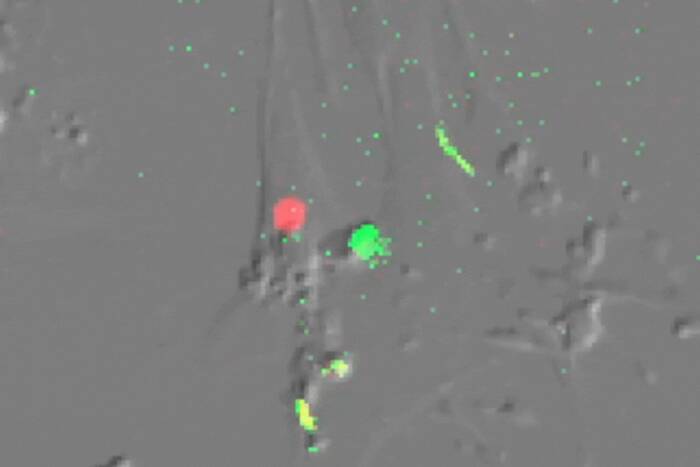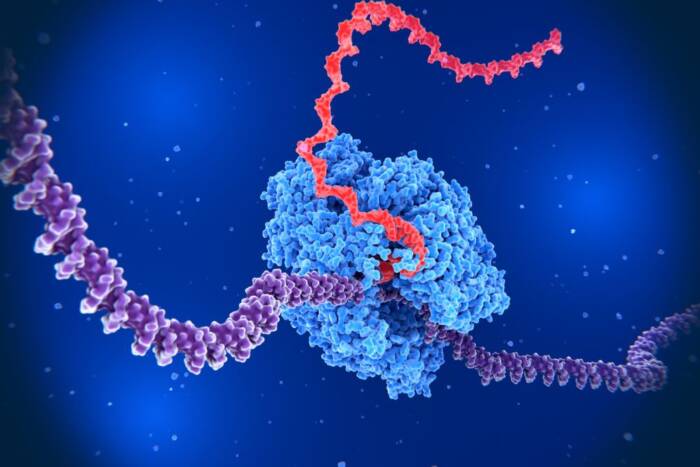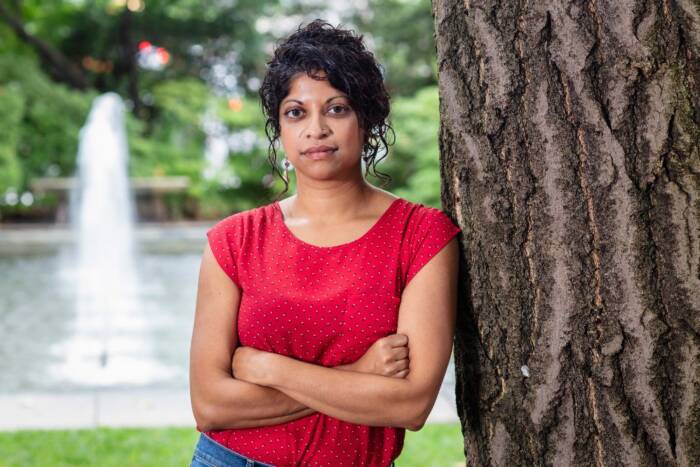Structural biologist, focused on cell transport machinery, to join faculty
Jue Chen, a structural biologist whose research focuses on transporter proteins that act as the cell’s pumping machinery, will join The Rockefeller University as professor and head of laboratory in July. Chen, currently a tenured professor of biology at Purdue University in Indiana and a Howard Hughes Medical Institute investigator, is especially interested in the role of transporter proteins in health and disease.
Transporter proteins, located in the cell’s membrane, are responsible for hauling some molecules, such as nutrients, into the cell, and pushing others, such as toxins, out. To accomplish this, cells must sometimes work against a concentration gradient, pumping molecules from an area of lower concentration to one of a higher concentration. Like rolling a ball uphill, this process requires energy. Transporter proteins consume chemical energy to do this job.
 Chen studies the structure, biochemistry and function of transporter proteins that power themselves with ATP, a molecule often described as the cell’s energy currency. For this reason, these proteins are known as ATP-binding cassette (or ABC) transporters. Scientists have identified about 2,000 members of this widely studied family of proteins. Chen has mapped in detail how the parts of a particular ABC transporter protein, the maltose transporter, work together to transport sugar into the bacterium E. coli. She made what is perhaps her most important contribution so far by revealing the complete cycle of the maltose transporter protein, which scientists use as a model to study other members of the ABC family.
Chen studies the structure, biochemistry and function of transporter proteins that power themselves with ATP, a molecule often described as the cell’s energy currency. For this reason, these proteins are known as ATP-binding cassette (or ABC) transporters. Scientists have identified about 2,000 members of this widely studied family of proteins. Chen has mapped in detail how the parts of a particular ABC transporter protein, the maltose transporter, work together to transport sugar into the bacterium E. coli. She made what is perhaps her most important contribution so far by revealing the complete cycle of the maltose transporter protein, which scientists use as a model to study other members of the ABC family.
The maltose transporter works by bringing a sugar, known as maltose, into bacterial cells and converting it into ATP, which in turn powers the transporter. Using a technique known as X-ray crystallography, Chen and her colleagues explored the protein’s structure down to the atomic level and devised a way to capture the transporter in mid-action.
“Jue’s research has thrown light onto the operation of ubiquitous cellular machines that transport key molecules into and out of cells, and her ongoing work will have many important implications for human health,” says Rockefeller president Marc Tessier-Lavigne. “It is my pleasure to welcome her to the Rockefeller community, where she will join a strong group of structural biologists working to solve some of the toughest problems in biology.”
Moving forward, Chen wants to apply the lessons from the maltose transporter to human disease and immune response. The human body contains 48 different ABC transporters that participate in all kinds of important cellular processes. About a dozen have been linked to various diseases, including cystic fibrosis.
One such protein, for instance, plays a protective role in the blood-brain barrier that protects the central nervous system. This transporter, p-glycoprotein, turns harmful in cancerous cells. “It has turned out that p-glycoprotein actually pumps the drugs out of the cancer cell before they reach their targets inside the cell,” Chen says.
She is also tackling new questions related to transporter proteins. “The move to Rockefeller appeals to me because I know it will give me the opportunity to establish collaborations with colleagues, particularly in immunology and biophysics,” she says.
Chen was born in Changsha in China’s Hunan province. After three years at Tongji University in Shanghai, she transferred to Ohio University in Athens, where her uncle was a math professor. She did her doctoral work at Harvard University with Don C. Wiley, a prominent structural biologist. She went on to Baylor College of Medicine for her postdoc, and then to Purdue.
“As a scientist, you are trying to solve a puzzle, and to go after nature’s secrets with the hope that your work can benefit humanity in the end. To me, it is about going after something so beautiful,” Chen says.


